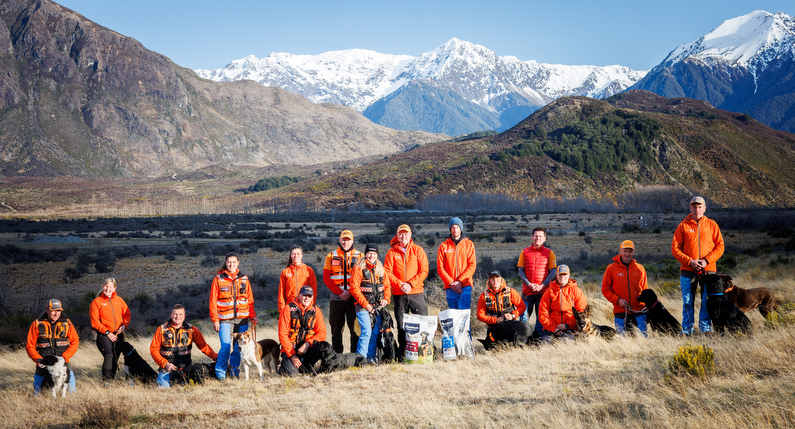
Land Search and Rescue Dogs
Outlining a niche search capability in our sector.
There are 17 operational Land Search and Rescue Dog teams across New Zealand. “Because it takes two to three years of significant dedication from a dog and handler to become operational, we have relatively few teams to draw on,” says Gemma Parkin, Group and Volunteer Support for the New Zealand Land Search and Rescue Dogs group. “Each team is part of a local Land Search and Rescue group, but dog teams are willing and able to support search tasks anywhere in the country.”
Using a sense of smell which is tens of thousands of times more powerful than a human's, the unique capabilities of a dog team can be a game-changer during a search. Specific attributes that search managers and field team members should be aware of include:
Darkness can make dogs more effective.
Because scent concentrations are higher at night and the lost party is more likely to be stationary in the dark, the probability of detection increases. Dogs also have superior night vision than humans.
Dogs can operate in any terrain that people can.
Dog teams train and operate in all types of terrain from thick forest or scrub to river corridors and the coastline. With support of an Alpine Cliff Rescue team, they can also operate effectively above the snowline.
Adverse weather can make dogs more effective.
Wind can aid detection, as dog teams can deploy downwind of a search area, allowing the wind to blow the scent to them. Light rain may rehydrate scent particles, making them more detectable by a dog. Although heavy rain, snow or winds can destroy a scent trail left by a lost party, they are still emitting scent. This means area search dogs may still be able to find them.
Dogs are an effective tool for locating non-responsive people.
Because dogs rely on smell, they are particularly useful when looking for despondent people, those with cognitive disabilities, young children, or unconscious people. Search dogs have successfully located people who have been deliberately evading searchers.
Dogs can be effective for days after a person goes missing.
In the right conditions, tracking dogs can follow a scent trail that is several days old. Area search dogs detect scent coming directly from a person; we all continue to emit scent, even when stationary for several days.
"We're in the process of making videos to better explain search dog capabilities," says Gemma. "But mostly it comes down to building good relationships between dog handlers and SAR managers. We hope that as more of these relationships are built around the country, dog teams get called more often when their unique capability could make all the difference."
To learn more about search dogs or to contact your nearest handler, visit nzlandsardogs.co.nz
This story was originally published in the December 2023 issue of Link magazine.
Feature Image: Handlers and trainers at a South Island training camp. Courtesy Jane Dunn Photography
